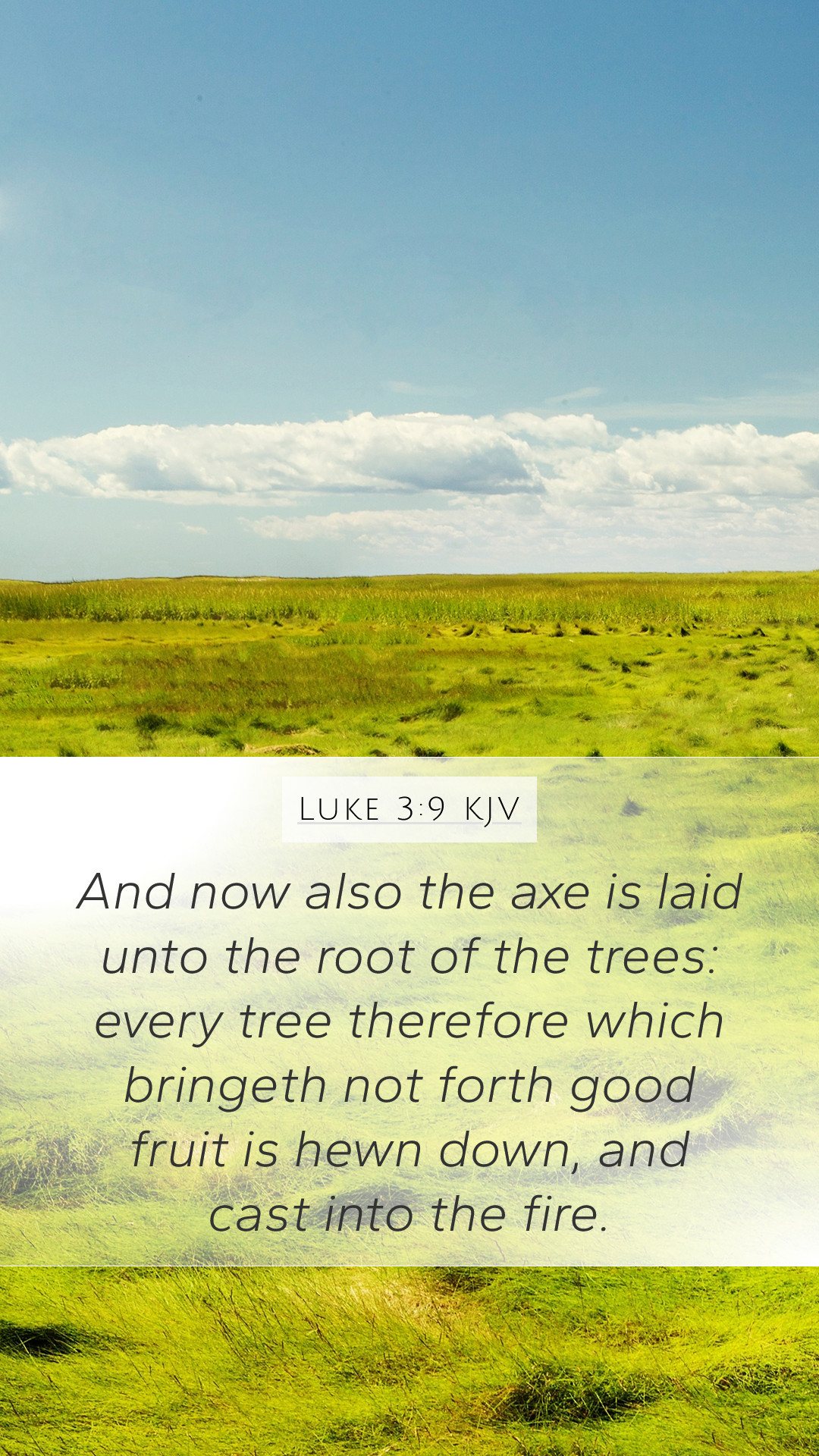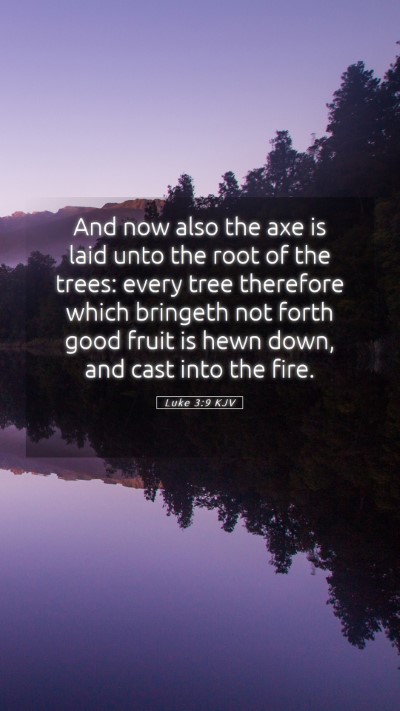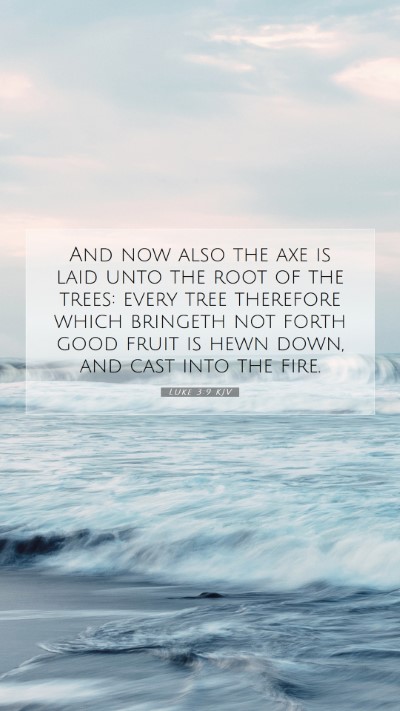Understanding Luke 3:9
Luke 3:9 states, "And now also the axe is laid unto the root of the trees: every tree therefore which bringeth not forth good fruit is hewn down, and cast into the fire." This verse is a powerful statement about the necessity of producing good fruit as a result of true repentance and faith. The imagery of the axe and the trees serves as a metaphor for judgment and the urgency for repentance. Below, we explore the insights provided by several public domain commentaries.
Verse Meaning and Interpretation
The primary message of this verse revolves around the theme of divine judgment and moral accountability. Here are some key insights:
- Urgency of Repentance: Matthew Henry emphasizes that the time for repentance is critical. The metaphor of the axe indicates that judgment is imminent and that one must act promptly to bear good fruit.
- Symbolism of the Trees: Albert Barnes notes that trees in this context symbolize individuals or communities whose actions yield results. The good fruit represents righteous actions that align with God's commandments.
- Axe and Judgment: Adam Clarke elaborates that the axe being laid at the root signifies God's readiness to execute judgment. This metaphor emphasizes the seriousness of failing to live a life reflective of one's faith.
- Fire as Judgment: Both Henry and Clarke point out that being cast into the fire symbolizes eternal separation from God, which serves as a warning to those unrepentant in their sins.
Application to Daily Life
In applying Luke 3:9 to daily life, one must consider the following:
- Self-Examination: Individuals are encouraged to assess their lives regularly. Are they producing good fruit in their relationships and actions? This verse challenges believers to live out their faith actively.
- Community Responsibility: The collective responsibility of a community is highlighted. A congregation or community that fails to promote righteousness may face dire consequences.
- Urgency in Evangelism: Understanding the urgency reflected in this verse should inspire Christians to share the gospel and encourage others to turn to God.
- Spiritual Growth: Believers are to cultivate their spiritual lives, ensuring they develop the fruits of the Spirit (Galatians 5:22-23) that demonstrate their faith effectively.
Cross References
For a deeper understanding of the themes presented in Luke 3:9, consider the following biblical references:
- Matthew 7:19: "Every tree that bringeth not forth good fruit is hewn down, and cast into the fire."
- John 15:2: "Every branch in me that beareth not fruit, he taketh away."
- Romans 11:22: "Behold therefore the goodness and severity of God: on them which fell, severity; but toward thee, goodness, if thou continue in his goodness: otherwise thou also shalt be cut off."
Conclusion
In summary, Luke 3:9 encapsulates the urgent call for repentance and the imperative of producing good fruit as indicators of a genuine faith. Through understanding scripture, believers are encouraged to reflect on their lives, engage in meaningful community practices, and actively pursue spiritual growth. This verse forms part of a broader biblical narrative focused on the principles of accountability and divine judgment, urging every individual to bear witness through their actions.


